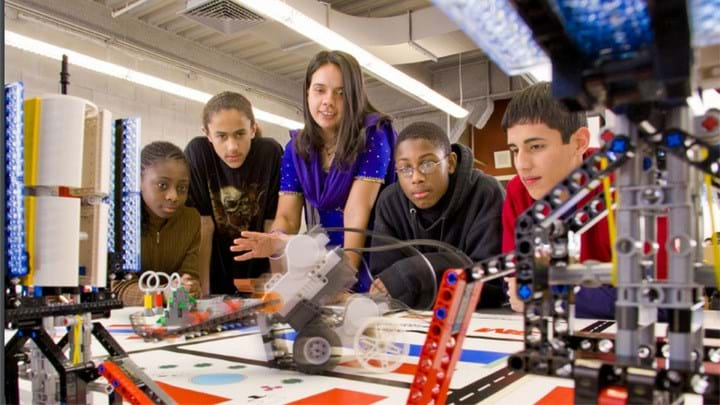Perkins report finds scant progress on engineering skills

FIVE years on from the publication of his engineering skills review for the UK Government, former chief scientific adviser John Perkins has warned that there has been scant progress in addressing the skills gap.
The warning comes as part of a review published by the Royal Academy of Engineering which found that significant progress has been made on just three of his original 21 recommendations. Of the remaining, 14 are ranked ‘amber’ – some progress made; and four are marked ‘red’ – limited progress made.
The report reviews each stage of the UK’s ‘leaky’ education system pipeline and how it is contributing to an annual shortfall of some 59,000 engineers. And with no clear post-Brexit immigration policy, the report offers a stark warning that some 560,000 jobs in the engineering sector currently occupied by EU nationals may need filling at short notice.
Leaking skills pipe
“Engineering is enormously valuable to the UK economy but suffers from a chronic shortage of skills, let down by the education system that removes the option of an engineering career for too many young people at each stage of their education. There has been little progress in addressing the UK’s engineering skills gap since I first reviewed the education system five years ago,” said Perkins (pictured), a former President of IChemE.
In schools, the report found that teacher recruitment has arguably worsened since 2013 with shortages of specialist teachers for maths, physics, computing and design and technology. And while engineering remains largely invisible in schools, well-intentioned schools outreach activities provided by the professional engineering community present a “complex and confusing” landscape which the report says should be coordinated through the Royal Academy of Engineering and EngineeringUK. A consistent way of evaluating this outreach would further strengthen the activity.
There is also concern that the current system, which requires students to narrow down the subjects they study from age 16, is essentially forcing a choice between sciences or the humanities, and this is in effect preventing many from pursuing engineering and creative technical opportunities. It recommends the Department of Education looks to create a broader curriculum that requires pupils to study sciences and the humanities up to the age of 18.
Technical progress
There has been significant changes in technical and vocational educational since Perkins’ original report. This includes the development and impending introduction of Technician Levels (T-Levels), and support for apprenticeships. Concerns remain though that the T-Levels curriculum will be too narrow so will not equip students for a broad range of engineering careers. Furthermore, it warns that the proposed 45-day work placement will be unworkable for many engineering employers.
On apprenticeships, a key worry is the lack of diversity among those joining schemes. While overall numbers are up, the report describes female and ethnic minority representation as “abysmally low” at 6% and 8% respectively.

Concerns about diversity carry over into higher education, a section of the report that IChemE directly contributed to. The proportion of females opting to study engineering at university remains “stubbornly low” at 15%, though BAME students are well represented at around 26%. However, students from lower socioeconomic backgrounds are not particularly well represented in engineering at 10% compared with 12% on average across higher education.
The numbers opting to study engineering at university could be hit by the results of a review into higher education funding. Engineering is a high-cost subject and an increase in fees would “seriously damage efforts” to increase the number of young people studying it and this would have “serious repercussions for the [government’s] industrial strategy”. The government must be prepared to increase top-up grant funding to ensure that engineering departments remain sustainable, it concludes.
Perkins says: “We need to broaden the curriculum for post-16 education, value technical education on a par with academic progression, unlock more potential from the Apprenticeship Levy, and guarantee affordable, fair and inclusive access to engineering degrees. These changes have the potential to pay dividends in the years to come for young people, the economy, and society.”
PEIs and parliament
The likes of IChemE have a key role to play in helping ensure the UK’s engineering workforce is able to adapt to digitalisation. Engineers and technicians will need upskilling and reskilling, so the report calls on Engineering Council and the PEIs to develop a coherent approach to the professional development of engineers and technicians both inside and outside of membership, and to engage with industry and coordinate the activity on behalf of the profession.
It also calls on the government to nominate a minister and member of parliament to work together to form an advisory group and champion the engineering skills challenge.
Reacting to the report, Dame Judith Hackitt, Chair of the manufacturers’ organisation EEF, said she is disappointed by the progress made.
“The report shows that we have barely moved the dial on plugging the engineering skills gap in the last five years,” said Dame Judith, who is also a former President of IChemE.
“In particular, there is a need to radically reform technical education – creating an Apprenticeship Levy system that is fit for the future and genuinely meets employers’ needs. We also to ensure T Levels do not face the same fate as the Levy but are employer-led and driven and, sufficiently funded in disciplines such as manufacturing and engineering.
“Finally, we need to shout from the rooftops that vocational education in the digital age is as credible and valuable as academic routes and can supply our economy with the much-needed talent from Generation Z for the future. Far from offering two separate routes, academic and technical education should be seen as intertwined, serving the demands of industry who are looking for a mix of vocational and academic learning to provide the innovators, creators and makers of the future. This should be accompanied by more joined-up collaborative action building on the good practice we’ve seen during Year of Engineering.”
Recent Editions
Catch up on the latest news, views and jobs from The Chemical Engineer. Below are the four latest issues. View a wider selection of the archive from within the Magazine section of this site.




